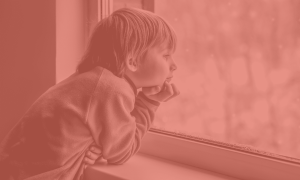
Sleep Training: How to Develop Positive Sleep Habits
Sleep training is something that everyone should do! It impacts nearly every aspect of our lives, from our mood and energy levels
A phrase that we’ve used for years is, “You live your life forwards, but you learn it backwards.” Many of us are always striving for success. When you look forward, it’s a good idea to reflect back on the past too. Whether you are a student in education or a worker wanting to improve, self-reflection can help you break down what worked, what didn’t, and how to take your next steps.
Looking back can seem contradictive at first, how are we doing ourselves any services focusing on the negatives? Easy, we aren’t! Reflection is about being critical, a teeny bit unemotional, and focusing on the good, not just the bad. And when we say unemotional, it’s alright to feel proud about what you accomplished! In fact, we encourage it.
Grab a pen and paper, it’s time to revisit the past year. Make a list of everything you can think of that has happened, the real highlights. Keep it chronological as best you can, this will be an overview of what you’ve been up to. What coursework did you do exceptionally well on? Exams you struggled to revise for? Deadlines completed or missed? Think personal goals too! Reflection is not limited to education or work. How many miles have you walked?
Now that you have a list of all the ups and downs, write under each what led to it being good/bad. And remember, think critically! Reflection is not about being self-degrading, it’s about seeing what went wrong so you’ll know how to improve! Perhaps it was bad scheduling or difficulty getting into the attitude.
Bullet journaling, or BuJo, is a great technique for getting big thoughts into simple, easy-to-read notes. That way, you can begin to see patterns emerge. It’s easier to look at yourself from a fresh perspective now than it was then, when emotions were high or low, and everything was happening all around you. Hindsight is 20/20, after all.
Now you know how to improve, it is time to implement it. Once again, grab a pen and paper! Let’s say a big issue is too much stress, leading to messy work. Creating a schedule to plan your work, as well as slot time in to rest or go on a walk, can help you feel more in control. Or write the big goals like; “I’m going to pass my exam”. Break the goal down into chunks, now it’s; “I’m going to research part 1 of this course” and so on.
Once you create a plan from your reflection, put the pen down, and reset. Take a break, a really good one too. It’s like New Year, sure you could have started your resolution yesterday, but right now is a chance to refresh. So, when you go into that new year of education or work, you’ll be going in with a positive and motivated attitude! And continue to journal what happens, update as time goes by. That will make reflection a year later far easier. Plus, no better feeling than ticking every completed box.
Reflective thinking is a life skill we have lived with all our lives. As a child, if you touch something hot, you learn not to do it again! As we get older, so many similar lessons can get lost in the chaos of the daily grind. Taking the time to look back and identifying what needs improving is just as valuable today.
Whether you prefer the physical notebook or the online account of all your yearly adventures, BuJo helps clear the emotional fog of the moment. Bring a bit of structure to your life, as well as a bit of flare… it’s your journal after all! If you would like to learn more, check out our book How to Bullet Journal: Or BuJo for Short — the beginner guide to help you organise your life.
For more information on this topic
Follow us on social media!

Sleep training is something that everyone should do! It impacts nearly every aspect of our lives, from our mood and energy levels

For many people, January is a bit like the Monday of the year. It’s cold, the weather is gloomy and it definitely

The start of a new year feels like the perfect time to make changes. Everyone’s talking about goals and resolutions, but here’s